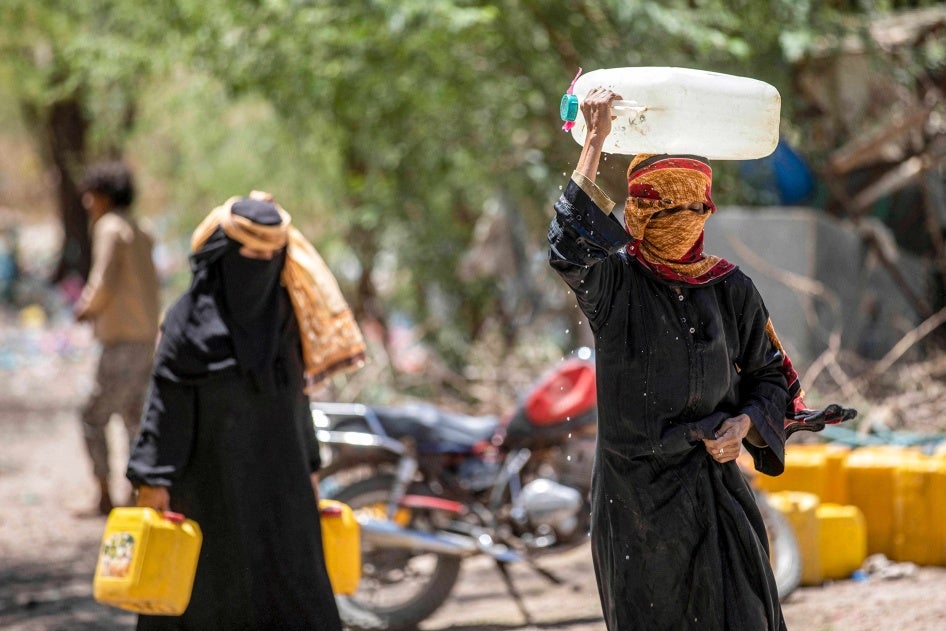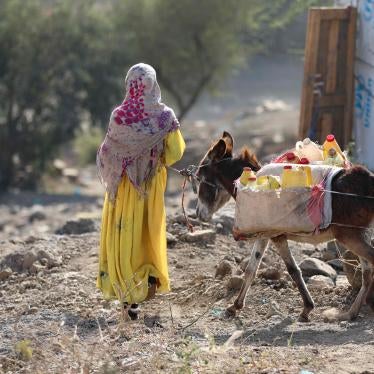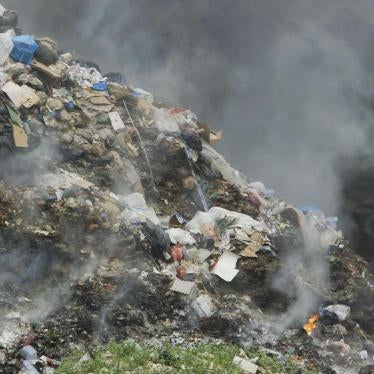(Beirut) – Warring parties in Yemen, including Houthi forces, the Yemeni government, and the Saudi and UAE-led coalition, carried out serious international human rights and humanitarian law violations in Yemen in 2023, Human Rights Watch said today in releasing its World Report 2024.
These violations included unlawful attacks which killed civilians and arbitrarily detentions. In Taizz, the country’s third-largest city, warring parties violated the rights to water, freedom of movement, and humanitarian access.
“The international community has failed to follow through on its commitments to people in Yemen, while warring parties’ violations have only continued,” said Niku Jafarnia, Yemen and Bahrain researcher at Human Rights Watch. “Without accountability for these abuses over the last nine years, there won’t be a foundation for a durable peace.”
In the 740-page World Report 2024, its 34th edition, Human Rights Watch reviews human rights practices in more than 100 countries. In her introductory essay, Executive Director Tirana Hassan says that 2023 was a consequential year not only for human rights suppression and wartime atrocities but also for selective government outrage and transactional diplomacy that carried profound costs for the rights of those not in on the deal. But she says there were also signs of hope, showing the possibility of a different path, and calls on governments to consistently uphold their human rights obligations.
People in Yemen face one of the world’s largest humanitarian crises, with more than 21 million residents in need of assistance and suffering from inadequate food, health care, and infrastructure. Despite this, all parties to the conflict have taken actions that have deepened Yemenis’ suffering. The Saudi and UAE-led coalition in particular has attacked food, water, and health infrastructure. The Houthis have imposed an abusive siege on Taizz and blocked water from entering the public water network. The Yemeni government and the Houthis have also imposed unnecessary restrictions and regulations on humanitarian organizations and aid projects, creating lengthy delays.
Saudi border guards have killed at least hundreds of Ethiopian migrants and asylum seekers who tried to cross the Yemen-Saudi border between March 2022 and June 2023. If committed as part of a Saudi government policy to murder migrants, these killings, which appear to be continuing, would be a crime against humanity. Human Rights Watch found that Saudi border guards have used explosive weapons to kill many migrants and have shot others at close range, including many women and children, in a widespread and systematic pattern of attacks. In some instances, Saudi border guards asked migrants which limb to shoot, and then shot them at close range.
All parties to the conflict, including Houthi forces, the Yemeni government, the UAE, Saudi Arabia, and various UAE and Saudi-backed Yemeni armed groups, have arbitrarily arrested, forcibly disappeared, tortured, and mistreated detainees across Yemen. Hundreds of Yemenis have been detained at official and unofficial detention centers across the country. On May 25, Houthi forces stormed a private residence in Sanaa where Yemeni Bahais were meeting and detained and subsequently disappeared 17 people.
Yemeni women also face restrictions on their freedom of movement, both in Houthi-controlled areas and in government and Southern Transitional Council-controlled areas.
There has been virtually no accountability for violations committed by parties to the conflict. Since the United Nations Human Rights Council narrowly voted to end the mandate of the Group of Eminent Experts on Yemen in October 2021, there has been no independent international entity to monitor the human rights situation in Yemen and lay the foundation for accountability for widespread abuses.








